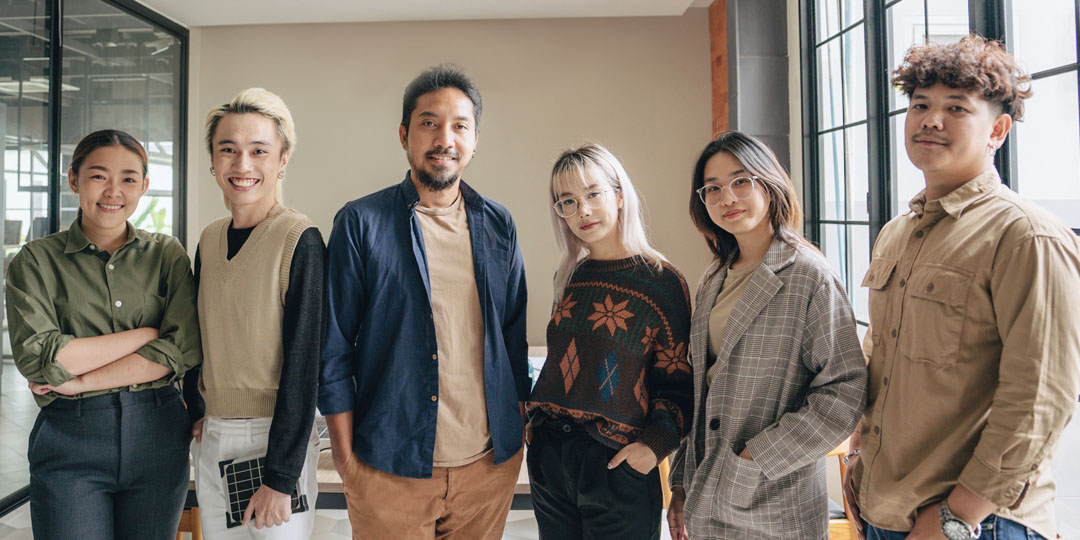Gen Z—the generation born between 1997 and 2012—is just beginning to enter the workforce.
As this newest cadre of workers (including me!) settles into our summer internships and first career-oriented jobs, there is no shortage of speculation about how we will show up.
This WorkLife article makes the case that we are “anti-meaningless work” (isn’t everyone?) and that we are “forcing employers to evolve their ways of working.” A FastCompany article points out that we will make up one-third of the workforce by 2030. It also adds that even though we are the first “digital natives,” this comfort with technology is accompanied by a downside. Apparently, we lack “a set of critical, often invisible skills for interacting with colleagues and handling jobs.” Ouch!
To be honest, when I started my summer internship at Dion Leadership this past June, I wasn’t aware of most of these generalizations and stereotypes. I had heard that my peers and I are “anti-work,” but as my friends and I discussed our career aspirations, I could see this was not true.

Gen Z is developing its relationship with work during a tumultuous time in our society.
With social norms shifting, virtual and hybrid working on the rise, and advancements in technology such as AI taking off, my generation is entering the workforce in the midst of some significant and rapid changes. Is it any wonder, then, that our experiences and expectations differ from those of the generations who came before us?
Growing up Surrounded by Technology
I was 12 years old when I was given a smart phone and, with it, an introduction to the world of social media. My early social media and technology influences included streamed content via Netflix or Hulu, social connection through Instagram, Twitter, or Facebook, and learning from YouTube. As the COVID-19 pandemic began, social media became my lifeline for personal connections. In some of my most formative years, the social behaviors that surfaced due to our forced isolation became normalized.
It’s not a stretch, then, to see how our early pandemic experience—disjointed education, social isolation, severely limited early career opportunities, and a lack of in-person work and face-to-face interactions—has carried over into my current work expectations and communication habits. And then there are the social media messages. “You, too, can become an influencer with a million followers and a six-figure income.” Why develop workplace skills and progress slowly in an outdated corporate system when you can get rich quick on TiKToK? These false, unrealistic messages have had a huge negative impact on me and my peers.
Gen Z is infused entrepreneurial spirit.

If we can look beyond these false messages, our sense of excitement, curiosity, and personal passions can be harnessed by our employers. That creative spirit just needs to be channeled into reality because it was disrupted by social media misinformation. Our perception of corporate culture undoubtedly differs from the reality, but we are open to having our minds changed. We need strong managers and mentors to get us off on the right path. We can then be a driving force for change, innovation, and connection.
When I started researching what others were saying and writing about Gen Z and work, I came across an intriguing psychological term: the illusion of explanatory depth. It’s the idea that we understand more about something than we actually do. The challenge with this phenomenon is that it limits our motivation and keeps the truth hidden. I think this perfectly describes my generation’s notions about work.
From the Classroom to the Workplace
My school to work transition was far more complex than I had anticipated. My summer internship has taught me about developing essential workplace skills. I’ve learned that gathering knowledge and building credibility takes time. For me, it has happened gradually through simple, yet consistent, behaviors like how you communicate, collaborate, manage time, show up for staff meetings, and take on projects. In other words, it means working from the bottom up to hone your skill set rather than striving for the number of instant “likes” you receive on social media. I believe that this kind of real-work experience gained through an internship is a vital component of a well-rounded academic curriculum.
In our transition from campus to corporate, I believe Gen Z will bring a fresh enthusiasm and energy, tech literacy, and an appetite for learning. We may be the most adaptable generation of workers yet. Why? In our formative years, we coped with some of the biggest changes in several decades, and we will continue to handle the seismic shifts that come our way. My peers and I bring insightful, new perspectives to the workplace. We are excited to gain experience and get to work. With a little direction and support, we will soon be contributing to the success of an organization with our innovative spirit and ability to thrive!
Read Next
Expanding Your Coaching Program to Create Leaders at All Levels
As a part of my work with Dion Leadership, I’m fortunate to hear updates and progress checks from our roster of 60-plus coaches regarding the growth and development of the leaders they coach. In all of this feedback, I have noticed there continues to be one constant:...
Building Your Leadership Development Program
According to legendary football coach Vince Lombardi, “Leaders aren’t born, they are made.” But how do you “make” a leader? At organizations big and small across a range of missions and industries, talent professionals know the value of offering targeted leadership...




